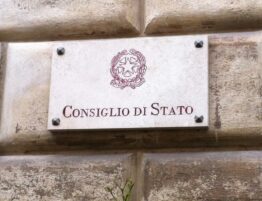
Support administration was introduced into Italian legislation for the purpose of allowing a lesser intrusiveness of the limits imposed by the law in cases of interdiction and incapacitation, establishing a flexible and articulated system that protects persons suffering from disorders which are not so severe as to cause interdiction, and that allows them to determine the personal and pecuniary relationships which may be independently managed by them. Indeed -as better specified below, when tackling the procedural aspects- in the decree appointing the support administrator, the Guardianship Judge will write down the acts for which the support administrator will have the exclusive representation, and those for which he will have to assist the beneficiary. With the exclusion of the above, the beneficiary will retain the ability to act (see Article 409 of the Italian Civil Code).
Most Scholars, as well as the case-law, agree in stating that, compared to the institutions of interdiction or incapacitation, “the scope of the support administration should be identified with regard not to the different and less intense degree of infirmity or inability to attend to the very interests of the person lacking autonomy, but rather to the greater capacity of such instrument to adapt to the needs of that person, in relation to its flexibility and to the greater agility of its applicative procedure” (Court of Rome in judgment of 24 May 2011).
In Article 404 of the Italian Civil Code, the legislator has used a generic formula to identify the persons who may use support administration, because of the inability of the law to rule that advanced age automatically constitutes a disability which makes the person incapable of performing certain acts.
Therefore, it is the case law that has eventually interpreted the wording of the legislator. In fact, with regard to this issue the Courts have stated that “Law No. 6 of 2004 has not expressly included elderly people among the beneficiaries of the activity of the Support Administrator. However, the wording used in Article 404 of the Italian Civil Code, to indicate the subjective requirements for the establishment of a protective measure, seems to have such breadth and elasticity as to enable the inclusion, under certain conditions, also of elderly people “(among others: Guardianship Judge, Modena Sec. II Dec., 24/02/2005). The requirement for this form of protection to be adopted also for elderly people is that their condition affects the “ability to meet their own needs” (Cass. Civ., Sec. I, 02/04/2014, n. 2364).
Coming to the practical aspects, the application for support administration may be filed with the Guardianship Judge:
- by the same beneficiary, even if minor, interdicted or incapacitated;
- by health and social services directly involved with the care and assistance of the person, when aware of facts such as to warrant the opening of the procedure of support administration;
- by the spouse, by the cohabiting partner, by the fourth degree relatives, by relatives-in-law within the second degree, by the guardian or by the public prosecutor.
Once the application is filed, the Guardianship Judge personally hears the person to whom the proceedings refer. He then decides, after having gathered the necessary information and heard the persons entitled to apply, even ordering ex officio medical examinations and any other measures of inquiry relevant to the decision. His decision has to acknowledge:
“1) the details of the beneficiary and of the support administrator;
2) the duration of the appointment, which may also be for an indefinite period;
3) the object of the appointment and the actions that the support administrator may adopt in the name and on behalf of the beneficiary;
4) the actions that the beneficiary may take only with the assistance of the support administrator;
5) the limits, even periodical, of the expenditures which the support administrator may incur by using the sums which the beneficiary has or may have available.
6) the frequency with which the support administrator must report to the judge on the activities carried out and on the beneficiary’s personal and social life conditions.”
The Judge’s choice of the administrator may be bound (except for serious reasons) to the choice made by the beneficiary who “in the expectation of his possible future disability, by public deed or by a writing with signatures authenticated by a Notary” specifies the person to be appointed. In the absence of such a provision the Guardianship Judge has to prefer “where possible, the spouse who is not legally separated, the regularly cohabiting person, the father, the mother, the son or the brother or the sister, the relative within the fourth degree or the person designated by the surviving parent by will, public deed or other writing with signatures authenticated by the notary”(Art. 408 C.C.).
The powers of the support administrator are the same as the ones of the legal guardian: Article 411 of the Italian Civil Code indeed states that some provisions are consistent, and therefore become common to the two Institutions, with the exception that, in the institution taken under examination, the Guardianship Judge will always be the one to issue all the authorizations needed by the administrator to carry out certain actions (for example, the authorization by the Guardianship Judge will be needed in order to collect capitals, to allow the cancellation of mortgages or the release of pledges, to undertake obligations, unless they concern necessary expenditures to maintain the beneficiary and to handle the day-to-day administration of his assets, sell property, with the exception of produce and property likely to easily deteriorate).
According to the combined provisions of Articles 411 and 376, when authorizing the sale of assets, the Guardianship Judge determines whether the sale should occur by auction or by mutual agreement, establishing, in any case, the minimum price.
In light of the above, it is clear that support administration is a flexible tool that is essential in order to provide help to those who are no longer able to carry out certain activities and at the same time to accord them a degree of autonomy within the limits of their abilities.
(Bologna Office, Graziano Marangi, tel. 0039(0)512750020)
 Print This Post
Print This Post








